Hip Hop International is dancing again in L.A., despite Delta, with its USA Championships
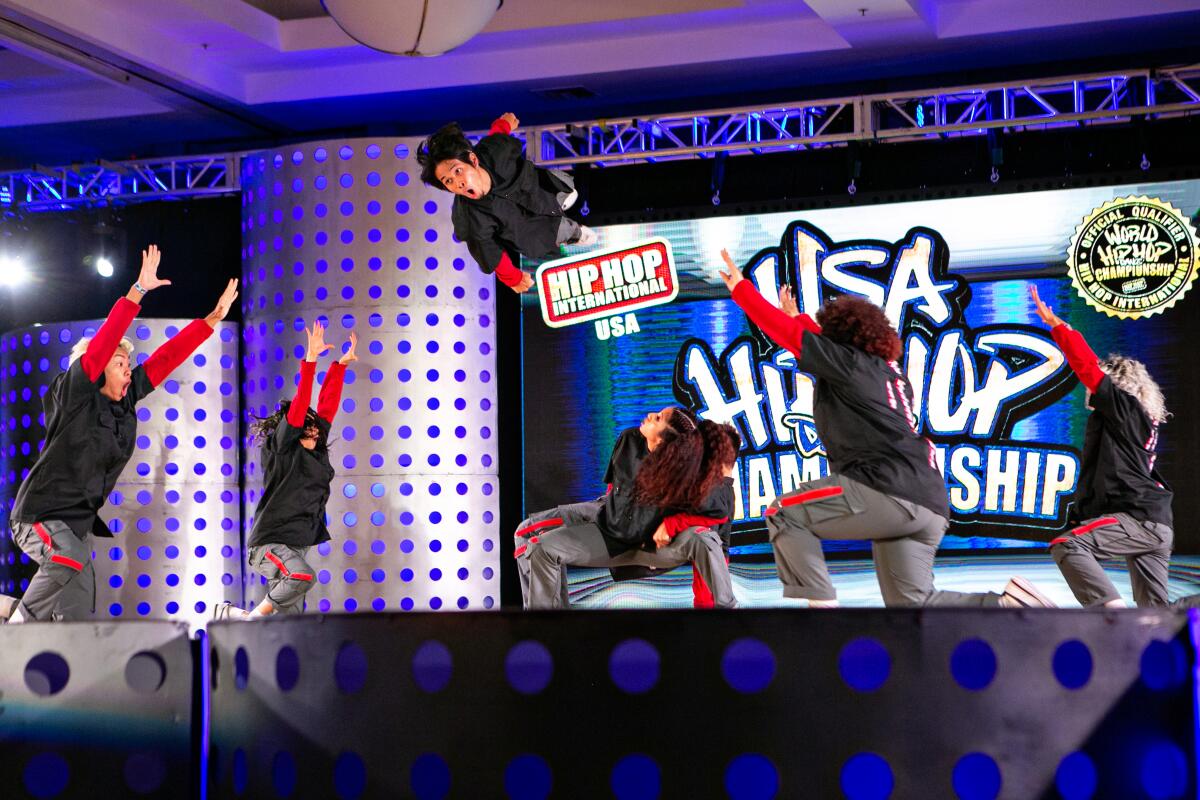
- Share via
For dancers who communicate, collaborate and compete in front of crowds, the pandemic stole a huge part of their art form. For the thousands of dancers who gather yearly for Hip Hop International’s USA and World Dance Championships, it also took away a major hub for dance community and culture.
The 2020 edition of the championships was not held due to COVID concerns, but in 2021 the event is back, albeit with an added virtual component. The USA championships, , held over Labor Day weekend at the Los Angeles Marriott Burbank Airport Hotel & Convention Center, drew crews from Massachusetts, Illinois, Texas, Florida, Arizona, Washington, Nevada and throughout California. Gold medal performances in the megacrew (Elektrolytes) and minicrew (El3kt) divisions came from Gilbert, Ariz., while San Diego had a strong showing with gold medals in the varsity (Imperium) and junior (Lil Supremes) categories. The Killas from Las Vegas took home gold in the adult section. The world championships, where all these winning crews will compete against other countries, will be presented online on Oct. 9.
For the record:
11:13 a.m. Sept. 7, 2021The World Championships will air on Oct. 9, not on Oct. 2. Also, Don Campbell was given the Living Legend award in 2005.
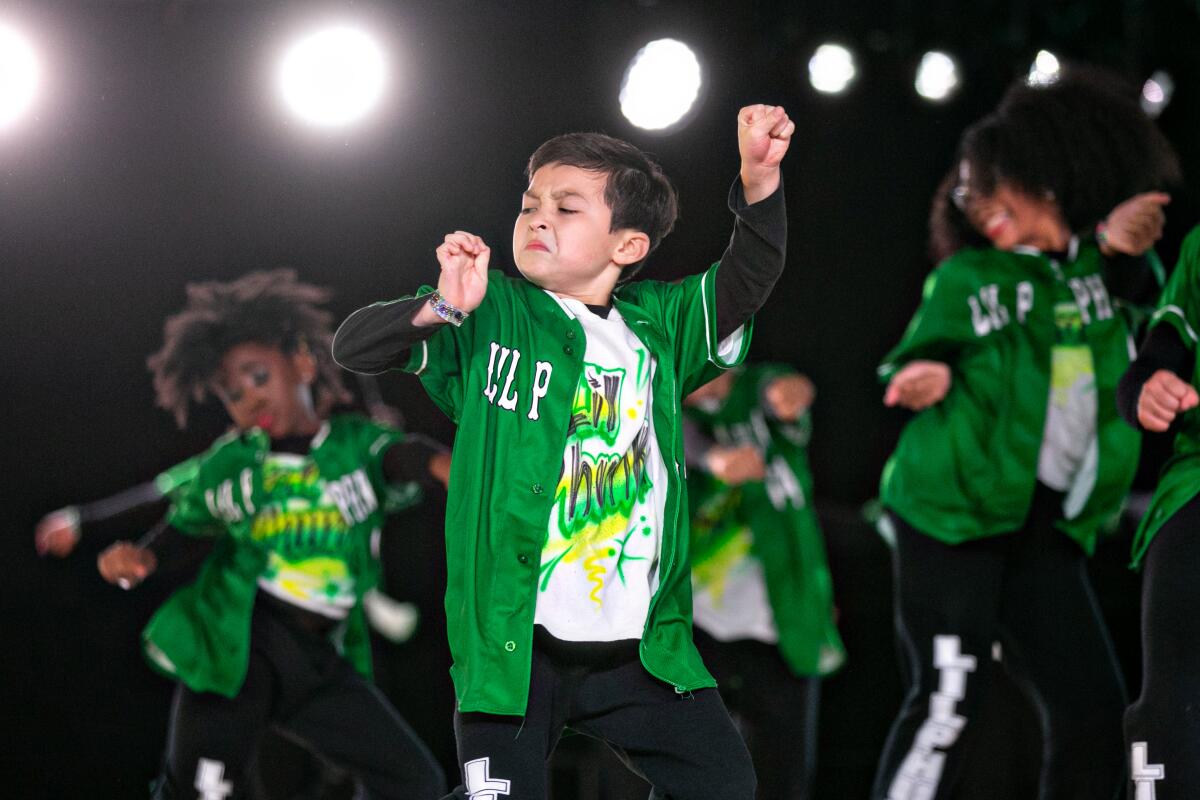
For crews and studios around the country, the event is a welcome reminder of life before the pandemic, which hit many dance companies hard in terms of enrollment. Reia Briggs Connor, owner of several dance studios in Boston and the driving force behind Phunk Phenomenon, a dance company that does work for the Boston Celtics and pursues numerous other activities on the East Coast, was one of the leaders who experienced difficulties due to the COVID-19 outbreak.
“I lost a ton of dancers. Our numbers went down to less than half as far as our dance studio, and a lot of dancers just weren’t comfortable coming back. It was definitely a bumpy year,” said Connor. “Financially, it’s been tough, but we’ve gotten a good amount of sponsors [to attend the Hip Hop International competition]. I did have to limit the amount of crews we sent — I usually fill every category.”
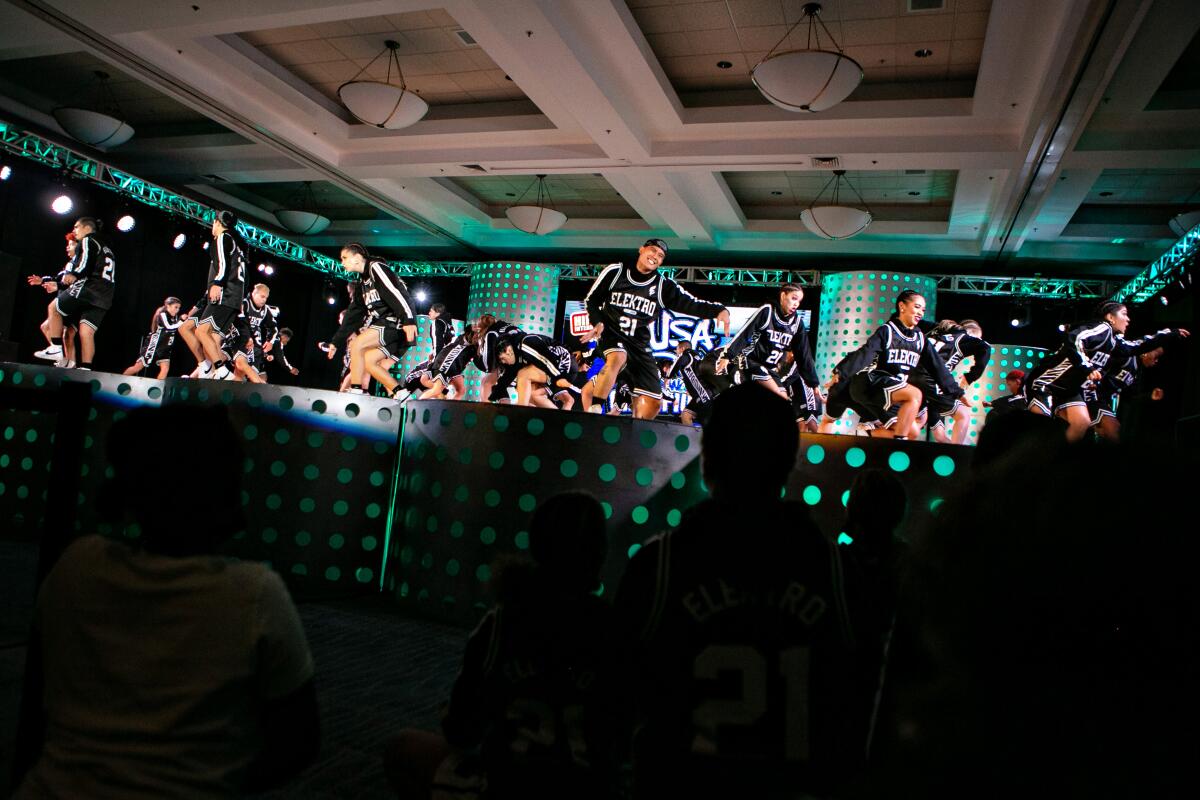
Connor is one of the many veterans in the hip-hop dance community who attended this year. Her platform is to raise awareness of Sanfilippo syndrome, but she and others also are fostering a relationship built on over a decade of trust with HHI.
“This year is a little bit different for Hip Hop International,” she said. “We’re kind of just going to reunite and let them know that we support them because they were also hit by not being able to have their event. We definitely feel like part of a family.”
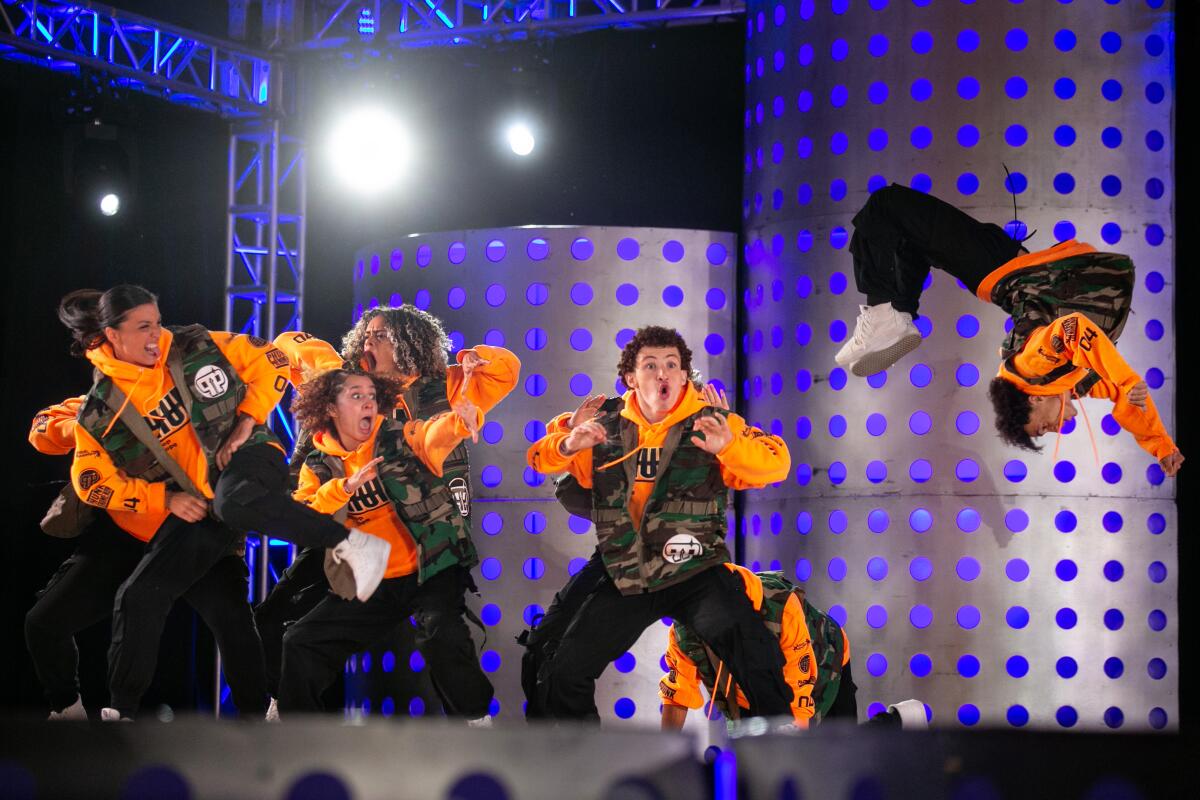
Howard and Karen Schwartz have always tried to bring that familial attitude to Hip Hop International. They started the organization, which grew out of an ’80s dance and fitness craze, in 2002, and it has since grown to include 53 countries that represent HHI with their own championships and activities. The USA and world championships often happen together, but they were split this year. That may strain this year’s theme — “coming together” — but it doesn’t douse the enthusiasm that the couple felt after announcing the USA portion of the event would be in person.
“Everybody was saying they just wanted to be out again. They wanted to be out onstage again. They wanted to see their fellow dancers again,” said Howard. “It’s opened up the dance community — the competitive side. That’s all they really needed to see was that there was an event, and that got them going again.”
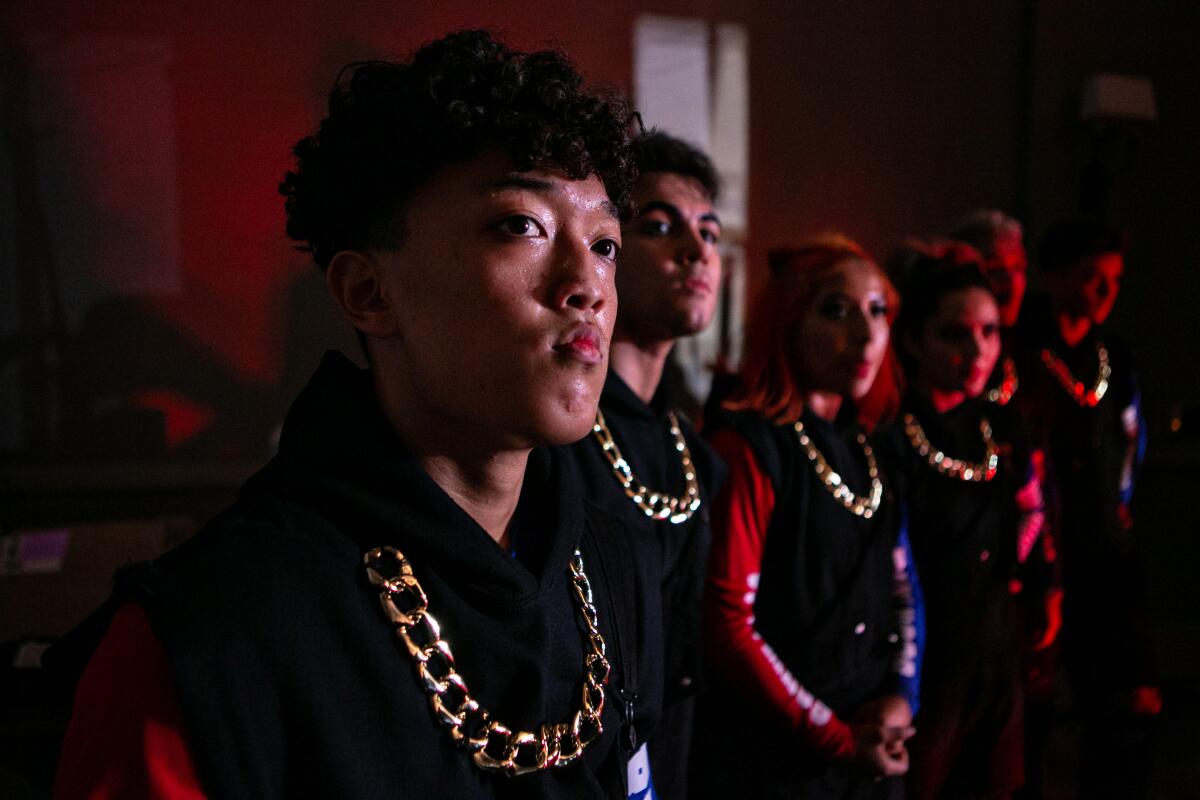
“It’s a wonderful relationship and we all play a part in its success. We give them a platform, but without their amazing talent and skills, it would be nothing,” added Karen. “We reached out and got some very positive feedback that said, ‘If you do this, we will be there,’ and that really motivated us to put together the USA Hip Hop Dance Championships in Southern California.”
HHI has been holding its events mostly in Arizona and Las Vegas, with stops in San Diego and Florida. The Schwartzes were most comfortable, though, moving the competition to Los Angeles because that’s where they’re based and where they felt they could better enact their COVID protocols along with the community’s regulations.
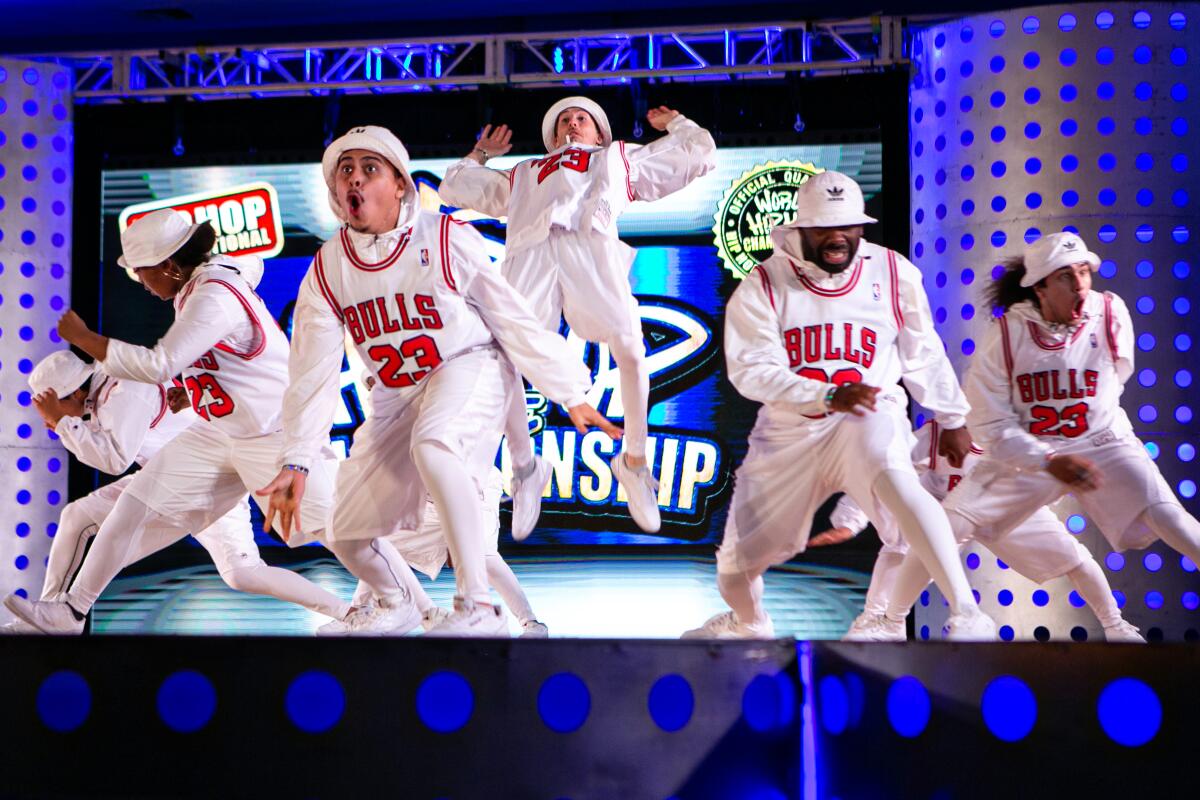
“We felt good with how Los Angeles was handling the pandemic. This is the home of HHI, and Southern California has many established dance crews,” said Howard. “But just being in an environment that we control, and having our employees be able to go home, was a plus. Things were changing quickly in other states, so we also just wanted to be closer where we were already in contact with the community and could know how things were being handled.”
For Cheryl Armour Frye, whose Origin Hip Hop Academy thrived in the San Diego area after reopening in a mall and reinventing itself, the California part was more than helpful since her dance company was competing in every category available.
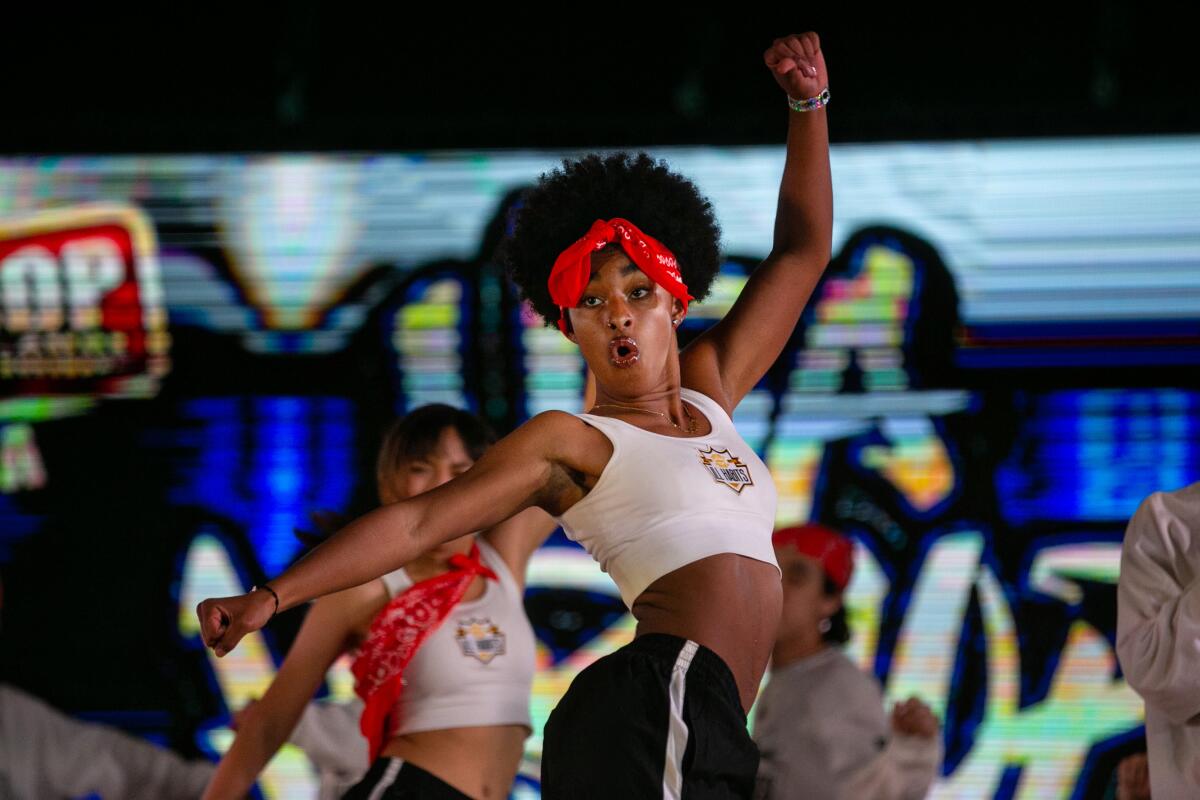
“It’s very convenient for our California crews. Parents don’t have to rent multiple hotel rooms and can maybe drop their kids off for a long weekend. It was a blessing,” says Frye. “L.A. is still L.A., and crews are excited that they get to come out.”
Frye did have kids who went through traumatic COVID events, and she saw when looking at the lineup that some dance companies were missing. She says it’s a mixed bag in terms of the competition but is there to support the culture.
“We still noticed that some of our favorite teams are showing up, but there’s a lot of studios that didn’t make it. Hopefully, this will inspire studios to start over and start fresh.”
Don Campbell tribute
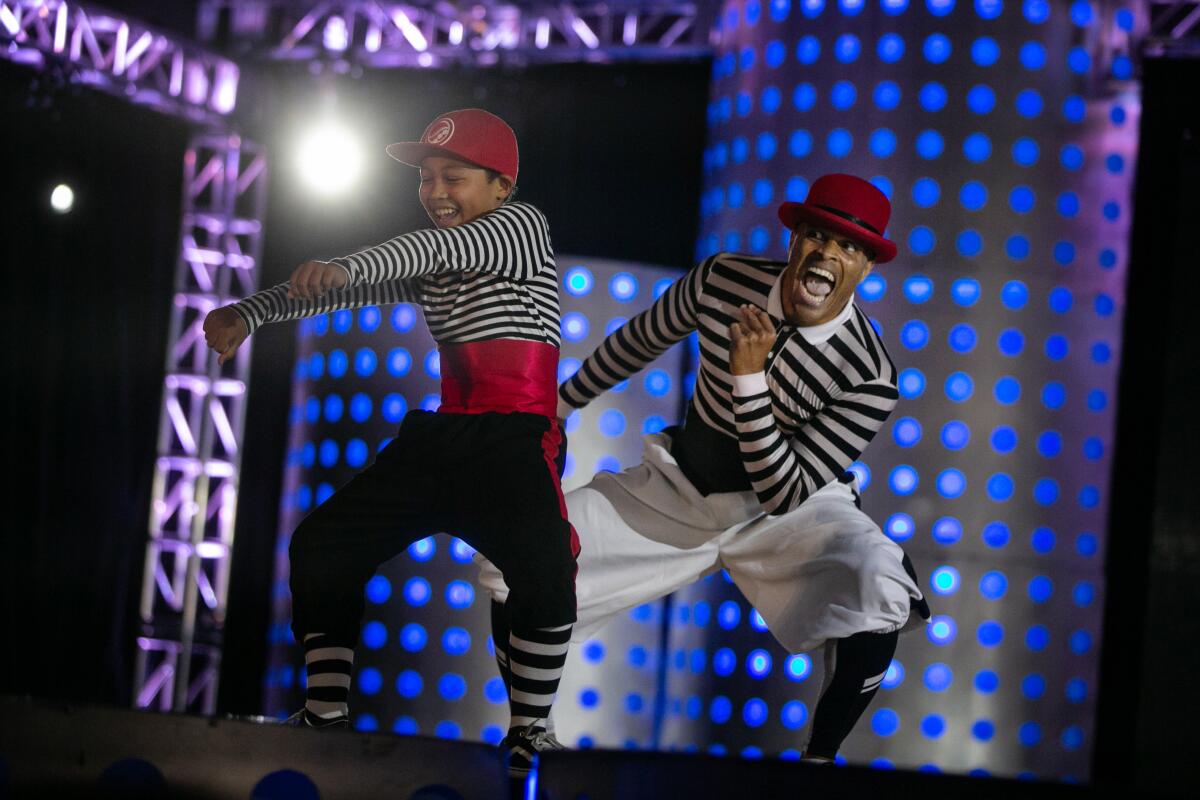
Don “Campbellock” Campbell, creator of locking — one of the most popular hip-hop dance styles — died on March 30, 2020. His dance group, the Lockers, which included “Hey Mickey” singer Toni Basil and “What’s Happening” star Fred “Rerun” Barry, were some of the first dancers to be featured not as backup performers but as a headline act. Campbell worked with Hip Hop International, watching and mentoring dancers from around the world that have adopted his style. HHI presented a tribute that included interviews with his family, people from his popular “Soul Train” days and more.
“First of all, we’re so sad at losing Don Campbell,” Karen said. “Since we met him, when we honored him with the Living Legend of Hip Hop Award, he has been such an important part of Hip Hop International. He was larger than life, and the amount of people he touched ...”
“We only hope that we can do justice to him with our small tribute,” added Howard.
His influence helped the organization gain a measure of credibility.
“[Events] were coming my way,” Connor said of her first encounter with the organization, “but I didn’t think they respected hip-hop enough for us to enter. When HHI came around, and once I saw Don Campbell’s name, and I knew he created locking, I discussed it with the crew and we tried to raise some money and get out to L.A. to give it a shot.”
Olympics are coming
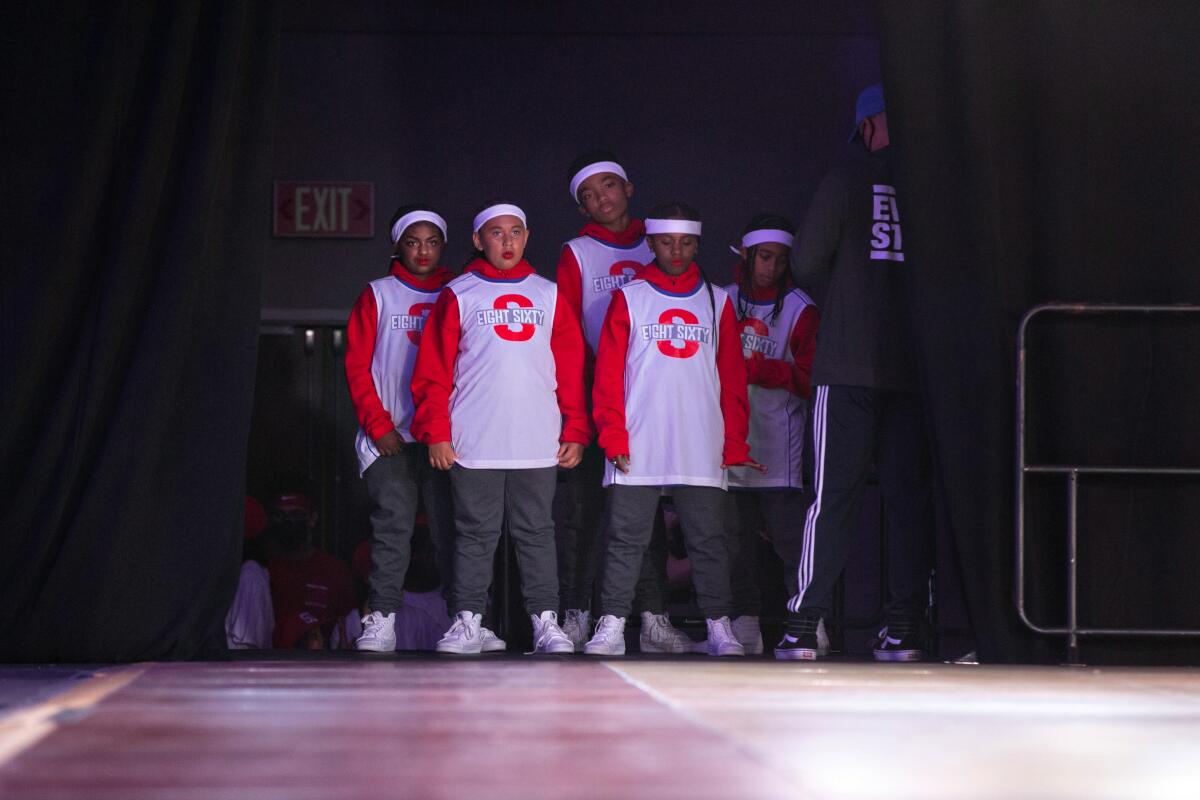
With break dancing being included in the Paris 2024 Olympic Games, it’s possible some of the participants in this year’s HHI championships could be competing. It’s on the minds of many competitors. But some are questioning the Olympics setup: who will be competing, who will be judging and the overall tone of the event.
“I thought it was amazing,” said Frye. “It’s very controversial because a lot of break dancers don’t think it’s amazing. A lot of them are actually against it. I don’t know if it’s 50/50 or 60/40, but a lot of people don’t want to see it happen. How that is is beyond me. I don’t see how they don’t see that it’s a wonderful thing for the community, a wonderful thing for hip-hop and a wonderful thing for athletes. Dancers are athletes too. Especially break dancers!”
Connor has also seen the backlash among break dancers to the possibility of the Olympics overshadowing the culture.. She also sees, though, that there are solutions that could help it be more inclusive for the purists.
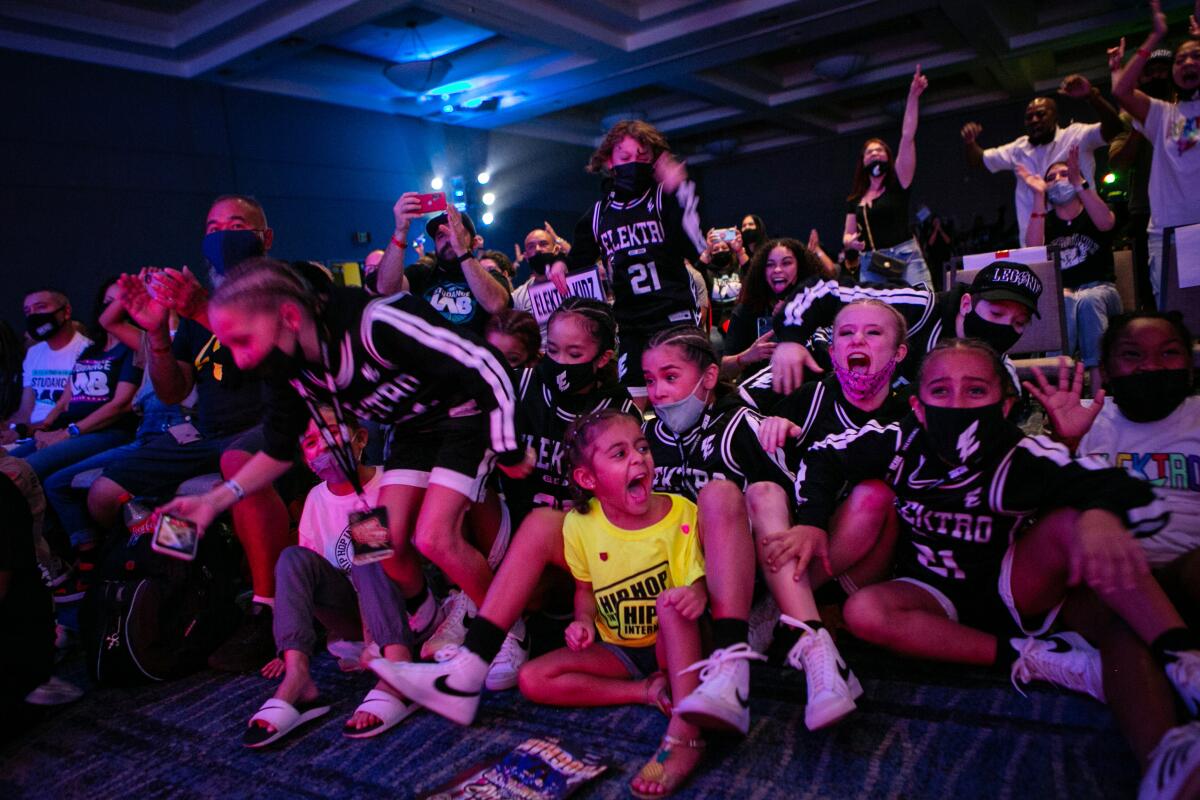
“Being somebody that’s been around hip-hop forever, I think it’s an amazing thing. The evolution of it and the appreciation of the athleticism of b-boying and b-girling. I think it’s going to be great on that end. I am afraid that the culture might get a little bit lost, but I’m hoping that they both stay alive — the culture of just going to a jam and doing the dance, not just the power moves. I think if they have the right panel of judges from the community that are able to judge, that are actually some of the founding fathers today, it could be great.”
“The old heads that may be against it ... they’re the reason this is happening!” says Frye. “Had they not been so good and really pushed younger kids to get into it, this wouldn’t be happening. They should be proud of their accomplishment. I would love to see some of our little ones work towards that.
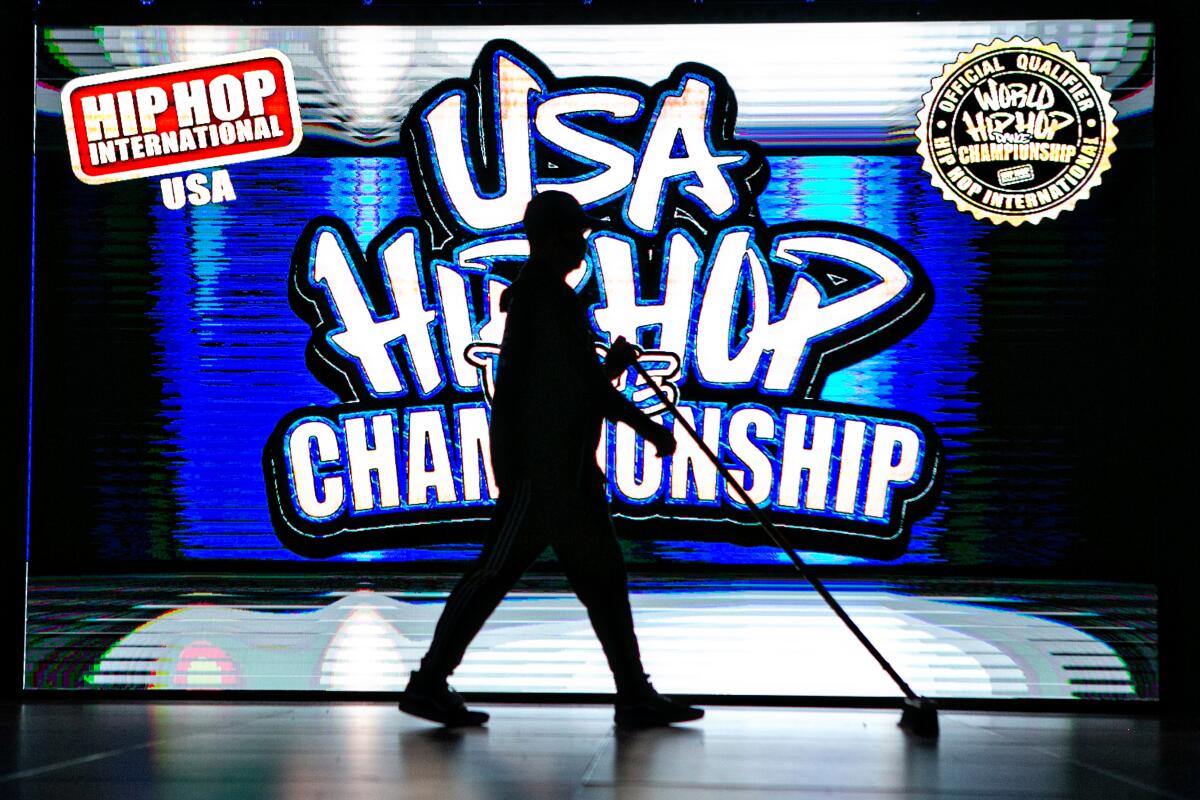
“It’s really no different than what Howard and Karen did, because Hip Hop International is the Olympics of hip-hop. You’re competing there — why not compete for the big medal. They were visionaries.”
More to Read
The biggest entertainment stories
Get our big stories about Hollywood, film, television, music, arts, culture and more right in your inbox as soon as they publish.
You may occasionally receive promotional content from the Los Angeles Times.











